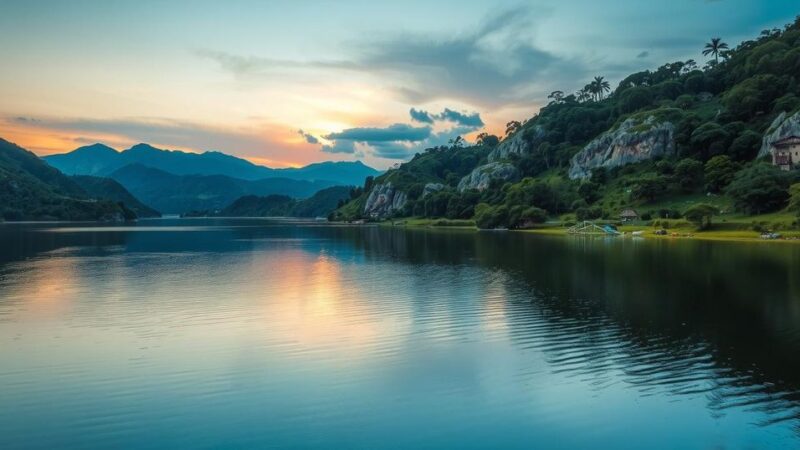The article examines the hypocrisy of Western criticisms of Azerbaijan’s role in climate change discussions, highlighting the disproportionate emissions of the EU and USA compared to Azerbaijan’s negligible contribution. It argues that Azerbaijan is actively pursuing a green agenda despite being an oil and gas producer and criticizes Western nations for diverting attention from pressing climate issues by focusing on geopolitical grievances. The article raises concerns about economic motives behind non-attendance at climate conferences, suggesting that constructive engagement is essential for meaningful climate action.
The recent campaign against Azerbaijan’s capability to host the upcoming Conference on Climate Change is rooted in hypocrisy, primarily aimed at undermining its global standing. Critics argue that Azerbaijan, being an oil and gas producer, should not lead climate initiatives. However, this perspective overlooks the reality that Azerbaijan is a minor contributor to global greenhouse gas emissions, accounting for a mere 0.1%. In contrast, both the European Union and the United States, which voice significant concerns regarding hydrocarbon extraction in Azerbaijan, are responsible for approximately 20% of global emissions themselves. The hypocrisy deepens with the EU’s continued cooperation with Azerbaijan, which seeks to increase gas supplies to Europe. If the West is genuinely committed to combating climate change, such cooperation raises questions about their motives. Notably, natural gas is a cleaner alternative to coal, which poses greater environmental risks. Azerbaijan is committed to a green transition, as emphasized by President Ilham Aliyev’s statements, stressing that revenues from fossil fuel production are being directed to support green energy initiatives. As such, Azerbaijan exemplifies how countries with fossil fuel resources can still pursue effective climate strategies. The criticisms of Azerbaijan do not stop with environmental concerns; they extend into allegations of serious human rights violations, such as ethnic cleansing. In the European Parliament, members have engaged in discussions showcasing a disparity in priorities. MEPs have called for sanctions against Azerbaijan while ignoring pressing global climate issues. This focus on geopolitical grievances detracts from the pressing agenda of climate change, which requires urgent attention from all countries. Some speculate that the resistance from certain Western nations to attend COP29 may stem from economic considerations rather than genuine concern for climate policies, as they might aim to evade the financial commitments tied to climate agreements, especially in supporting vulnerable developing nations affected by climate change. The call for increasing climate finance from $100 billion to potentially $1 trillion suggests that there are substantial economic implications at stake. Azerbaijan’s critics should prioritize collaboration over divisiveness, particularly in light of the climate crisis that poses a significant threat globally. Failure to address climate issues holistically may lead to further discord among nations, risking the stability of ecological balance worldwide. It is crucial that the West re-evaluates its stance and participates constructively in the COP29 discussions in Baku, learning from the mistakes of past communications to foster a cooperative approach to tackle the climate crisis collectively.
The discourse surrounding Azerbaijan’s role in climate change discussions often intertwines with broader geopolitical tensions. As an oil and gas producer, Azerbaijan finds itself at the center of debates that question its legitimacy in leading climate initiatives despite its negligible contribution to global emissions. The imbalance between accusations made against Azerbaijan and the emissions attributed to Western nations highlights a significant hypocrisy in the climate change dialogue. This background contextualizes the criticisms Azerbaijan faces and elucidates the motivations behind them, revealing how economic interests may distort the climate crisis narrative.
In conclusion, the campaign against Azerbaijan’s leadership role in the climate summit reflects broader issues of hypocrisy and selective accountability within the Western narrative on climate change. Azerbaijan’s low emissions and active investment in green energy initiatives exemplify a commitment to alleviating climate impacts, contrasting sharply with the high pollution contributions from its critics. The collective West stands at a critical crossroads, where genuine engagement in climate initiatives is paramount, rather than focusing on politically motivated criticisms. The prospects for meaningful dialogue and action on climate change are best served through active collaboration and honest participation, which is crucial as the world seeks solutions to the escalating climate crisis.
Original Source: aze.media






